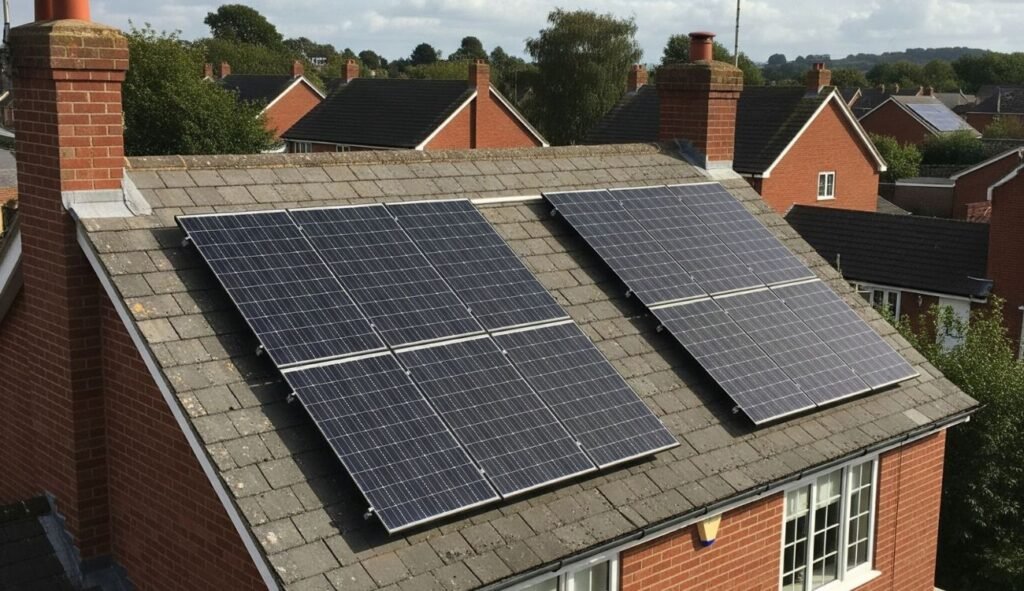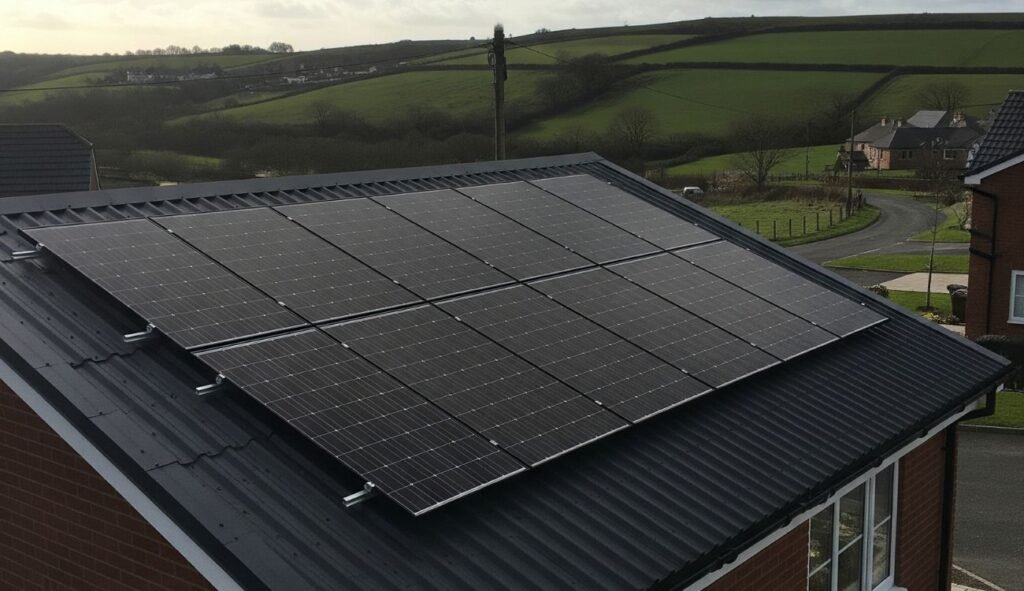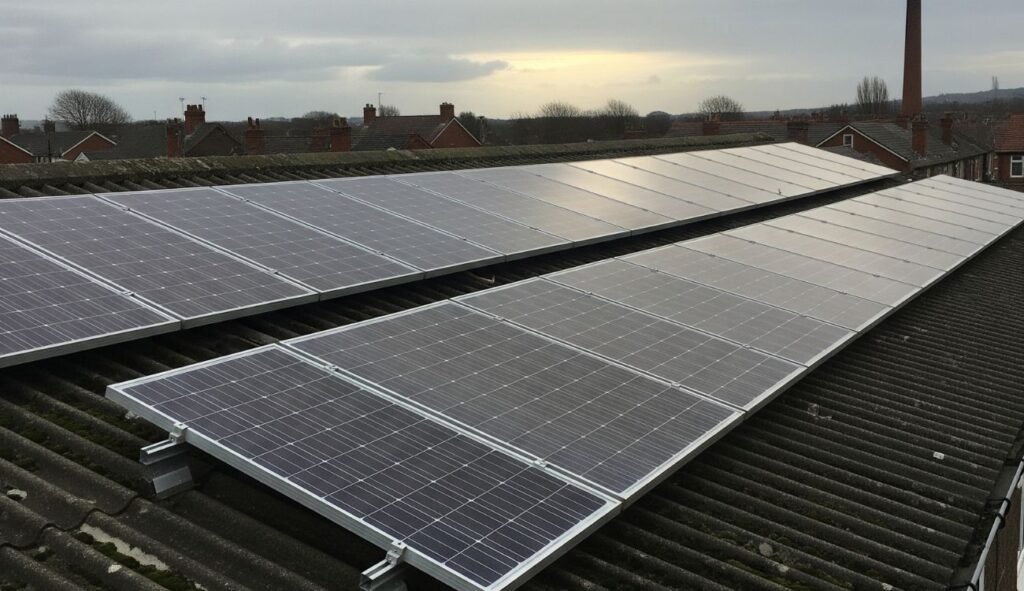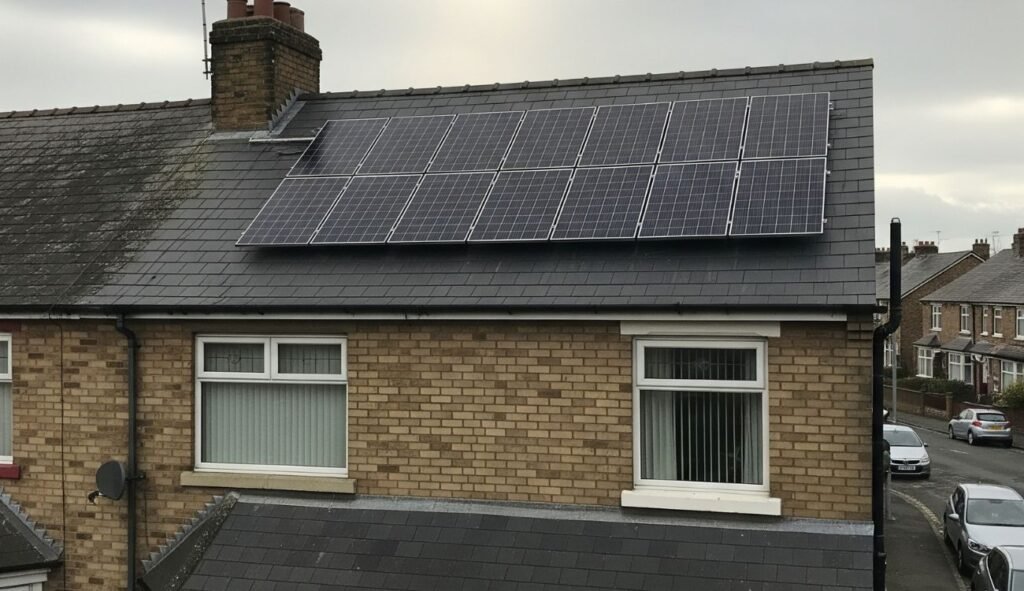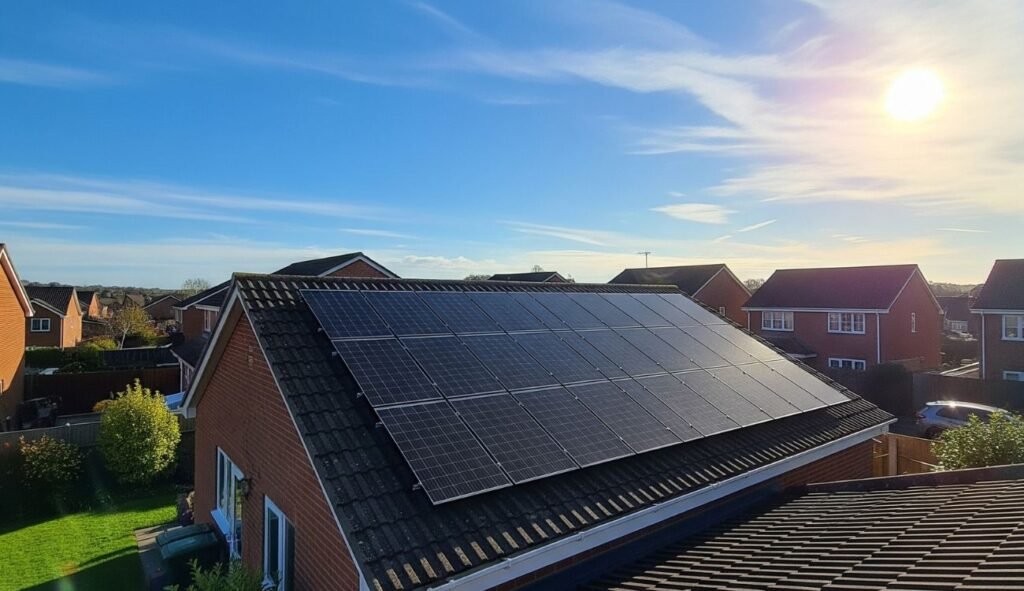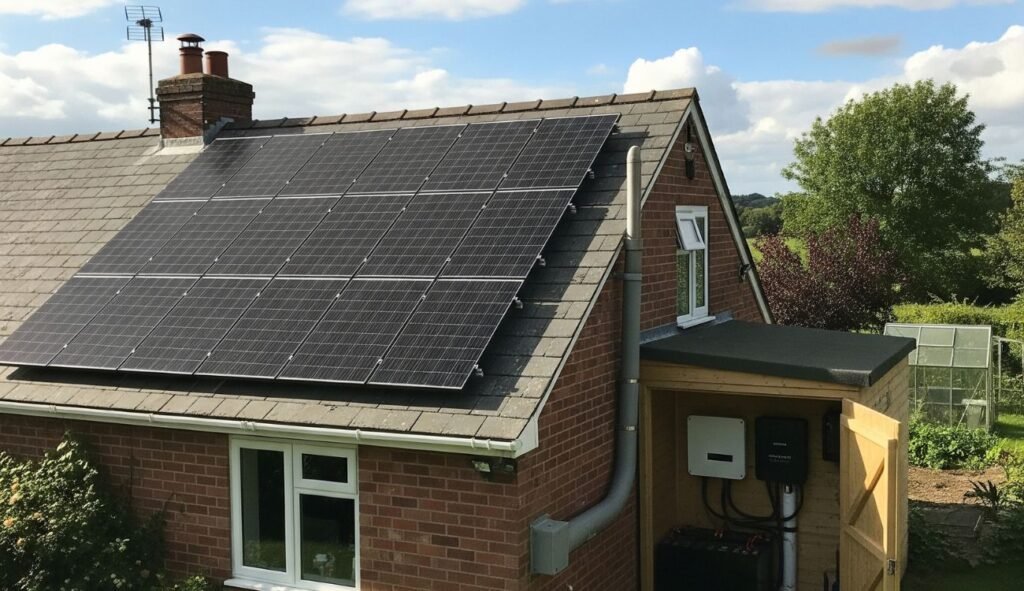Installing solar panels is a smart way to reduce your energy bills and carbon footprint. However, many UK homeowners, landlords, and commercial property owners often ask: Do you need planning permission to install solar panels?
This guide will clarify the rules, exceptions, and practical considerations, helping you make an informed decision before investing in solar technology.
Do You Need Planning Permission To Install Solar Panels in the UK?
In most cases, you do not need planning permission to install solar panels on your property in the UK. This is because solar panel installations usually fall under permitted development rights, which allow certain types of work to be carried out without applying for planning permission.
However, there are important exceptions and conditions depending on your property type, location, and how and where the panels are installed.
When Planning Permission Is NOT Required
According to the UK Government’s Planning Portal, you can usually install solar panels without planning permission if the panels:
| Condition | Details |
|---|---|
| Location | Are installed on a domestic property’s roof, usually on a non-listed building |
| Height & Size | Do not extend more than 200mm beyond the plane of the roof slope |
| Coverage | Do not cover more than 50% of the roof area facing the highway |
| Visibility | Panels are not installed on a wall that fronts a highway, unless it is a flat roof |
This means most residential installations, especially on typical roofs, are covered under permitted development rights.
When Planning Permission IS Required
Planning permission is usually required if:
| Scenario | Explanation |
|---|---|
| Listed Buildings | The property is listed or in a conservation area |
| Flat Roofs | Panels installed on flat roofs extending beyond the roof edge |
| National Parks or Protected Areas | Properties located in national parks, Areas of Outstanding Natural Beauty, or World Heritage Sites |
| Large Commercial Installations | Large-scale commercial solar systems or solar farms above certain thresholds |
| Structural Alterations | The installation requires structural changes beyond mounting panels |
Do Listed Buildings or Conservation Areas Have Different Rules?
Yes. According to Historic England and local planning authorities, solar panel installation on listed buildings or in conservation areas faces stricter rules:
- Planning permission is almost always required.
- Panels must not harm the character or appearance of the building or area.
- Alternative options such as solar tiles or less visible placements may be considered.
If your property is listed or in a conservation area, consult your local council planning department for guidance before proceeding.
Are There Specific Rules for Commercial and Flat Roof Installations?
Commercial buildings and flat roofs have distinct rules. According to the Energy Saving Trust:
| Type of Property | Planning Considerations |
|---|---|
| Commercial Buildings | Larger installations may require planning due to size and visual impact |
| Flat Roofs | Panels should not exceed 1 metre above the roof surface to avoid permission requirements |
| Ground-mounted Panels | Usually require planning permission unless on agricultural land with permitted development rights |
Always check with your local planning authority when considering commercial solar installations or flat roofs.
What About Building Regulations and Electrical Safety?
Even if you do not need planning permission, you must still comply with:
- Building regulations for structural safety and fire safety.
- Electrical safety standards to ensure safe connections to your property’s electrical system.
- Certification may be required by a qualified installer.
Your installer should handle compliance and necessary notifications to local building control.
How to Check If You Need Planning Permission for Solar Panels?
Here’s a simple checklist to assess if you need permission:
| Step | Action |
|---|---|
| 1 | Check if your property is listed or in a conservation area |
| 2 | Confirm if the installation meets permitted development criteria (height, location, size) |
| 3 | Consider the type of property (domestic vs commercial) and roof type |
| 4 | Consult your local planning authority’s website or contact them directly |
| 5 | Request advice or a site visit if unsure |
Why Choose Future Heat for Your Solar Panel Installation?
If you are based in Tyne and Wear, Newcastle, or the wider North East of England, Future Heat offers expert solar panel installation services with full knowledge of local planning rules and building regulations.
They provide:
- Comprehensive planning advice and site assessments.
- Professional installations ensuring full compliance.
- Quality products and ongoing support.
Request a free solar panel quote from Future Heat today and take the first step towards sustainable energy with peace of mind.
Frequently Asked Questions (FAQs)
Landlords generally have the right to install solar panels but must comply with tenancy agreements and inform tenants. Permissions may vary if panels alter the property significantly.
The SEG encourages exporting excess solar power back to the grid and has no direct impact on planning permission, but panels must meet Ofgem standards for accreditation.
If required, local planning authorities typically respond within 8 weeks, but times can vary based on complexity and location.
YUsually, landlord consent is needed before installation. Planning permission rules depend on the building’s status and location.
Permitted development rights can be limited on new-build homes depending on the planning conditions set at the time of construction.
Our Verdict
Understanding whether you need planning permission to install solar panels is a key step in your renewable energy journey. For most UK homeowners and landlords, solar panels can be installed under permitted development rights without applying for permission, especially on standard roofs.
However, special cases such as listed buildings, conservation areas, flat roofs, and commercial installations require careful planning and local authority consultation.
Ensuring compliance with planning and building regulations will save you time and avoid costly enforcement actions. For those in Tyne and Wear, Newcastle, and the North East, Future Heat offers expert guidance and professional installation services to help you navigate the process smoothly.
Start your solar project confidently, request a free quote from Future Heat today and power your property sustainably!
Jamie Maguire is Managing Director at Future Heat Ltd, the UK-based renewable energy company specialising in heat pumps, solar panels and energy-efficient boiler solutions. He leads the company’s strategic vision to decarbonise homes and businesses across the UK by delivering innovative, sustainable heating and power systems. Jamie is passionate about shaping the future of energy, supporting communities and empowering teams of skilled engineers to deliver lasting value and carbon reductions nationwide.


